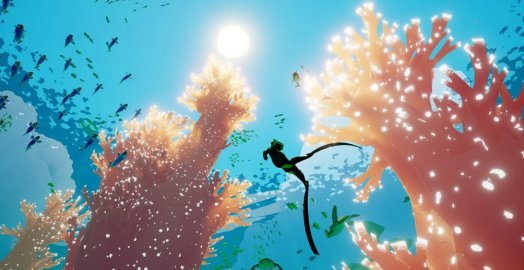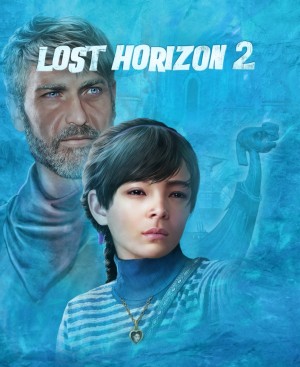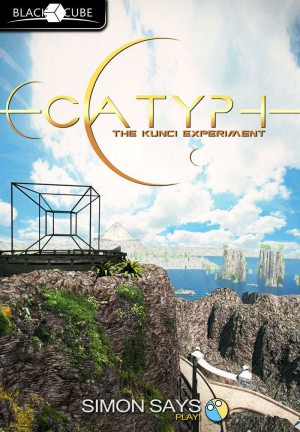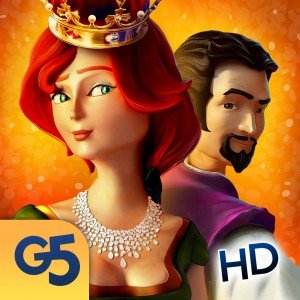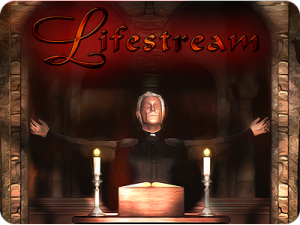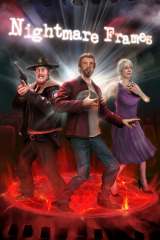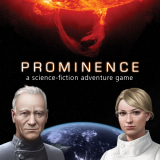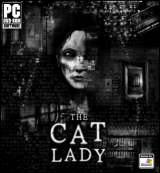Review for ABZÛ
Game information
Adventure Gamers Awards
From my earliest days spent enraptured by Jacques Cousteau and the crew of the Calypso, the oceans have always held endless fascination for me. And for good reason: Take all the best sci-fi writers and artists and ask them to populate the most fantastical world imaginable, and the result would surely have nothing on the amazing underwater realm right here on Earth. (Indeed, chances are that many of the fictional designs would be inspired by our own seafaring creatures.) We look to the stars for any sign of life, and yet we haven’t finished identifying all our own incredible aquatic wonders by looking to the ocean depths. Needless to say, when the opportunity arose to play Giant Squid’s ABZÛ, I eagerly dove headlong – both literally (or at least virtually) and figuratively – into the underseas exploration game, and was never once sorry that I did.
ABZÛ will be one of those titles destined to fall under the “is it a game or isn’t it?” debate, to which the only correct answer, of course, is “who cares?” It’s silly to insist that a free-roaming exploration of the vast ocean expanse must confine itself to artificial genre walls. That said, it’s certainly true that ABZÛ is hardly a game in the traditional sense. There are no puzzles to solve or enemies to combat, and other than throwing the odd switch and activating the occasional portal, there are really no objectives to complete beyond finding your way from one picturesque ecosystem to another. So if you’re the sort of person who would find snorkeling the Great Barrier Reef boring without having sunken pirate treasure chests to find, don’t hold your breath for anything like that here. For those who would value such an excursion simply for its beauty and the joys of discovering the unknown, you’d better hold your breath, because ABZÛ is going to take you for an incredible swim.
Actually, you don’t really need to hold your breath at all. Worrying about breathable air would be too game-like, after all. It’s not really clear what race the playable protagonist belongs to, but although bedecked in a black diving suit with long flippers and a headlamp, it’s obvious you’re not exactly human. For one thing, you never run out of oxygen, and for another, you’re never subject to the vice-like ocean pressure no matter how deep you go. Nor are you vulnerable to most of the game’s dangers, though your own mortality does eventually come into play. ABZÛ offers no introduction to explain who you are, what you are, or why you’re here, dropping you straight into the action to let you find your own way.
Much like the absence of conventional gameplay, there is no dialogue and no overt plot to follow as you progress, only cryptic clues to discover along the way. The word ABZÛ is a combination of the ancient words AB, meaning ocean, and ZÛ, meaning to know, making ABZÛ the ocean of wisdom. But this is an ocean that guards its secrets protectively, teasing only with vague hints instead of answers. For much of the game, WTFZÛ is probably a more accurate description, if not quite having the same ring to it. But the further you go, the more you’ll begin to understand – or at the very least, the more you’ll feel empowered to draw your own conclusions.
At predetermined points you’ll encounter crumbling ancient ruins adorned with hieroglyph-style frescoes, and at others you’ll be confronted by imposing mechanical obstructions, while in between you’ll return periodically to a central hub made of pillars of light for some surreal moments of mystical splendour. I’ll leave it to you to form your own interpretations, but it’s not a spoiler to say that I found it a lovely tale of creation, destruction, redemption and rebirth. I was even moved by it; while I typically prefer straight exposition over pretentious obscurity, Giant Squid has struck just the right artistic storytelling balance here.
But all this high-concept stuff isn’t really what ABZÛ is “about”. Really you could bypass the philosophical underpinnings entirely and still have a blast, because the main attraction here is delving through one gorgeous seascape after another and interacting with myriad creatures as you go. The various settings are jaw-dropping, ranging from vibrant, brightly-lit shallows to the murkiest of ominous depths. One minute you’ll be kicking up white sand around pink choral and turquoise rocky outcroppings, and the next you’ll be easing your way through giant kelp growing from floor to surface in water tinted heavily with rich greens or vivid burnt amber, making it feel like the seasons are changing underwater. You can even surface in places for a topside view that is pretty enough, but the real attraction of the ocean lies beneath, so you’ll soon re-submerge to continue on your way.
As stunning as it is just to look at, it’s the denizens of the deep, rather than its décor, that really make the experience come alive. There are literally hundreds of species of marine life to encounter, coming in all shapes, sizes, and colours. The roster is impressive: creepy anglerfish illuminate a massive whale skeleton on the dark ocean bottom; giant clams snap shut in sensing your approach; the aptly-named eagle rays glide gracefully through the water as if in flight. And the deeper you go, the more bizarre the dwellers, as here even prehistoric species have been preserved. What a treat to swim with the bulgy-eyed ichthyosaurus and marvel at the Nessie-like elasmosaur. Some fish dart about nervously in tightly-packed schools, while others patrol the waters alone, including various kinds of sharks. And yet, despite the predatory nature of the seas, ABZÛ is a peaceful adventure for the most part, the only real danger being posed by the remnants of mankind (or whatever poses for humanity in this world).
The artwork itself is realistic enough but with a gentle painterly quality not unlike an underwater version of Journey. ABZÛ comes by that influence honestly, as its Creative Director is Matt Nava, former Art Director at thatgamecompany. The visuals aren’t the only similarity to Journey either, as Austin Wintory reprises his role as composer, and has once again created a masterful backdrop. I’m not one to generally enjoy listening to full orchestral music on its own, but as an accompaniment this is precisely how I find it most impactful. Never once overwhelming the visual experience, the score subtly enhances the atmosphere and emotion of each scene, whether a carefree playfulness, serene earnestness, or even more melancholic and menacing moods when necessary. If the music ever looped, I wasn’t aware of it, and indeed I felt like the music itself was telling the story of ABZÛ. I simply cannot pay a higher compliment to a soundtrack than that.
With ABZÛ following the thoroughly appropriate “string of pearls” design, there is only one path through the game, yet at each major stop you are able to explore at will. These areas aren’t huge, but they’re expansive enough that you’ll feel yourself reasonably free – at least until you hit an invisible wall that turns you back around. There is very little to actually do here besides being a gawk-eyed tourist, but there are a few collectibles to find and portals to activate additional types of sea life. As if emphasizing the non-gamey nature of the game, there are also statues to locate that allow you to sit and “meditate” on what you see around you. This enables a kind of out-of-body experience that lets you view the marine animals up close. Manually shifting from one creature to another is extremely imprecise, but with a little fiddling you’ll get a first-hand look at anything you find most fascinating.
In between these exploratory level pearls, however, are perhaps my favourite parts of the game. At several points you will ride a swift ocean drift from one area to the next, and it’s a delightful audio-visual experience. You have no control over your forward motion, as you’re simply swept along with the fast-moving current, but you can engage with schools of fish to accompany you. Others will do so on their own. It’s a thrill to swim with dolphins and orcas through underwater canyons at high speed, backed by an upbeat score that makes the whole procession feel positively balletic. On another occasion, you’ll be swept along with a group of humpback whales as they barrel roll through their descent. There’s no chance to observe them hang upside down and sing, but I guess you can’t have everything.
With so little interaction required and such a large space for maneuvering, ABZÛ’s controls are certainly adequate. They do fall short of the “fluid acrobatics” promised, unfortunately. It feels most intuitive with a gamepad (although fully functional with a mouse and keyboard), with the left stick turning the protagonist and the right stick the camera, but I found the movements a bit too jumpy. The right trigger is needed to dive and swim (or right-click of the mouse), which means you’ll basically spend the entire game with the button depressed. It’s hardly heavy lifting, but it does get a bit tiring after a while. A minor speed burst is available, but really the only time I bothered with it was when ascending to open air. With the right timing it’s possible to breach the surface like a dolphin, but that never proved as exciting as it sounds. Small complaints aside, however, rest assured that even the most dexterity-challenged gamer will find navigating ABZÛ’s oceans entirely manageable.
The only other interaction is with the few little mechanical submersibles you encounter. You can’t control them directly, but you can communicate with them by sound, and they’ll respond to you with emotive chirps. In certain instances they’ll help you out in performing simple tasks, but for the most part they’re merely company. It may not sound like much, but swimming beside and around you, always nearby, these submersibles are actually quite engaging as companions. At various points you’ll need to leave the current one(s) behind, and I was surprised by how lonely I suddenly felt. I couldn’t wait to find and uncover the next one on my journey.
You could easily speed your way through ABZÛ in just a couple hours, and there’s very little “replay” value since there isn’t much to actually “play” in the first place. But if you speed through ABZÛ then you’re missing the point of this sightseeing adventure, which is mainly to slow down and enjoy the ocean’s natural beauty. To that end, you can revisit any level upon completion of the game, or head back to meditate more at any statue you’ve activated. Even the credits are something to whimsically enjoy rather than impatiently get through, as you can continue to swim around while the names roll past.
I recommend ABZÛ wholeheartedly to anyone who doesn’t demand that a game feel like a game. I’ll admit that I wouldn’t have minded a little more objective-based activity to help shape the experience, but even without that it’s a memorable, leisurely exploration of an otherwise-inaccessible setting that’s so close to home and yet so far away. The production quality is stellar, sounding even better than it looks, and without a single word there are just enough story beats to feel remarkably poignant. There’s nothing preachy about the approach, but there’s a definite message that the seas belong to their own, and that those who would destroy them are unwelcome intruders. ABZÛ is only a short game if you want it to be, so if you’re still undecided about whether to take the plunge, I enthusiastically encourage you to come on in – the water’s fine!




